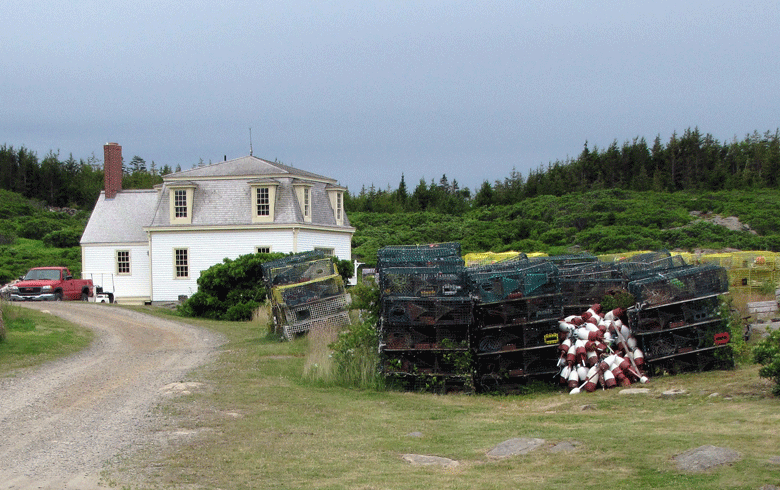Drive down any part of Route 1 and you’re bound to spot at least a few signs sporting phrases like “Save the Fishermen, Stop the Mills,” or “Stop Ocean Industrialization.” Given the challenges facing Maine’s fishing industry, it’s no surprise people are concerned about the future of their coastal communities.
The signs on lawns and roadsides are evidence of the palpable fear of an uncertain future coursing through the coast. If we pause and take the time to honestly look at the situation, can anyone blame fishermen and women, their families, and their communities for the real fear they are feeling?
This is fear based on uncertainty. Fear based on wondering whether they can continue making a living doing what they love to do. Fear based on questions about offshore wind and federal regulations to protect the endangered right whale.
Fear based on questions about offshore wind and regulations to protect right whale.
Too often, people don’t take the time to listen and learn from one another. We are caught in a world where everything is overly politicized, in a culture where how we think or feel about an issue is too quickly dismissed by others as wrong or misguided. Would you feel like the leaders in a legislative or judicial process were listening to you if they didn’t acknowledge how you were feeling, or what you were afraid of? I wouldn’t.
I spend a lot of my time, and have for the past two decades, talking to fishermen. During that time, I’ve learned a few things, not the least of which is that the vision of a multi-purpose ocean is not a foreign concept on the wharf.
For those who see the harm of scrubbing the eggs off a single female lobster as an unforgivable environmental transgression, and for people who regularly return every other lobster to the water to grow and seed the fishery for the next five to ten years, “environmental impact assessment” means something very different. Their daily life and lived experience are based almost entirely on their own personal conservation work in a highly regulated industry with equally complex social, cultural, and ecological systems.
For many of the fishermen I have talked to, change is the only constant. They’ve seen the coast become ever more reliant on a single species while also watching the ups and downs of global economics swamp that fishery. They’ve seen firsthand the alarming impacts that climate change is having on their lives, businesses, and communities.
More importantly, they’ve seen what can happen and how they can influence policy and shape events simply by effectively engaging in conversations about how to manage our coast.
As state and federal agencies, as well as private corporations, focus their sights on offshore wind, it is no longer a hypothetical for the Gulf of Maine. Offshore wind is no longer a matter of “if,” but of “how” it impacts the fishery and the communities that depend on the ocean for their way of life.
As decision-making processes move forward with a limited ability to include fishermen and meaningfully address emotions like fear and loss, we are faced with a dynamic in which people are feeling marginalized or not heard. Fishermen feel their cultural identity is being stripped away in the name of societal progress. To some, it may seem strange to focus on “feelings” in a conversation that involves fishermen and state agencies. However, with public and private efforts on offshore wind moving ahead, sharing our thoughts and fears about the future is the only way to move forward.
These conversations must start from a non-judgmental perspective that invites and validates feedback from those who love this coast and the heritage their livelihoods represent. Our coast is too important to not work together to shape it, and to shape our shared future.
We must learn how to listen again, and to talk to each other with a shared goal in mind, so we can all help shape the future of our coast. In navigating the changes that are inevitable, we can go quickly alone, or we can go far together. As somebody who cares deeply about the coast, our communities, and the people that call the Maine coast home, I look forward to listening, learning, and working together. Let’s see how far we can go.
Sam Belknap is a senior community development officer with the Island Institute, publisher of The Working Waterfront.





